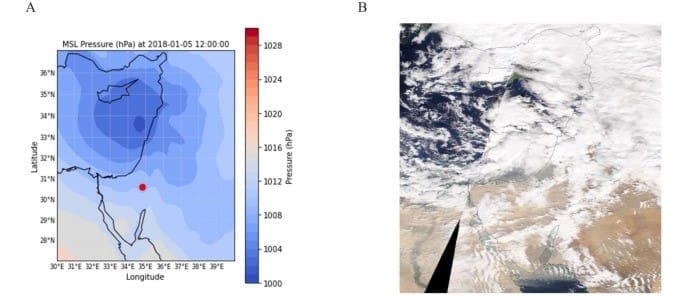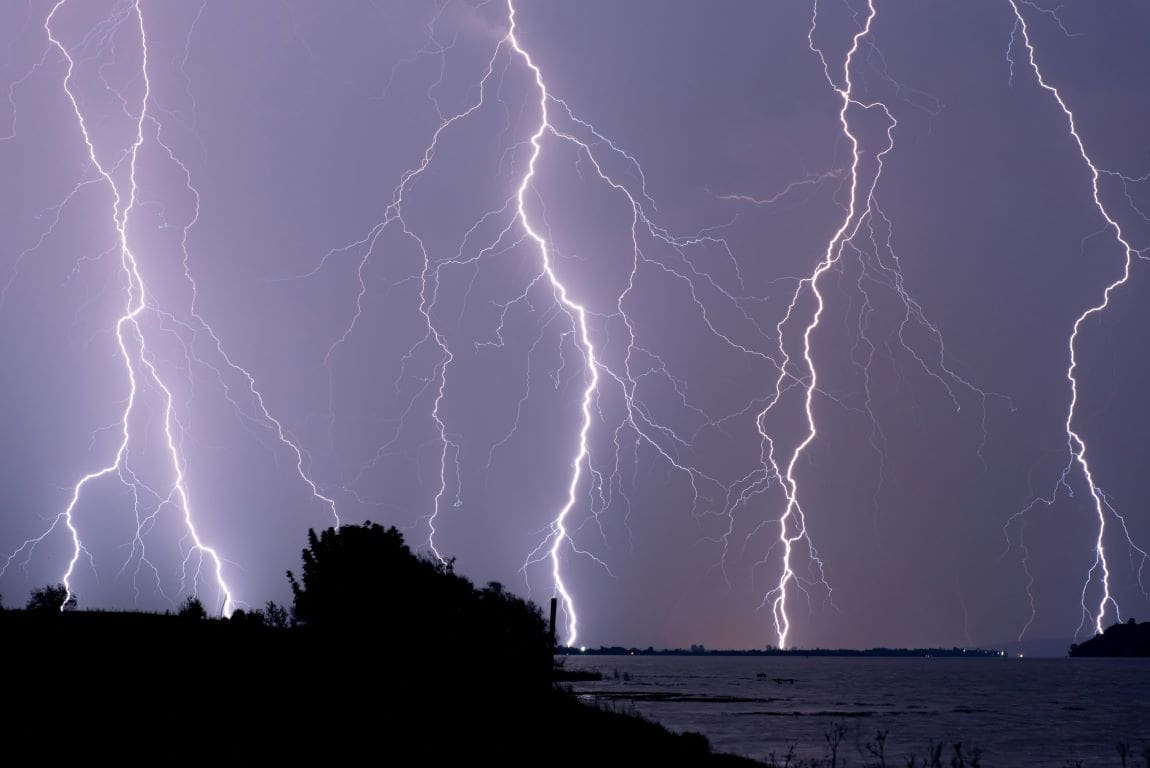Atmospheric electric fields may offer a breakthrough in predicting extreme weather, according to new research led by Dr. Roy Yaniv from the Institute of Earth Sciences at The Hebrew University of Jerusalem and Sheba Medical Center.
The study, conducted in collaboration with Dr. Assaf Hochman from The Hebrew University and Prof. Yoav Yair from Reichmann University, provides compelling evidence that monitoring electric field changes can enhance weather forecasting, especially in regions prone to sudden shifts in weather patterns, like Israel’s Negev Desert.

The research focuses on low-pressure winter systems, known as “Cyprus Lows,” which bring moisture-laden air to southern Israel, causing heavy precipitation. By analyzing electric field data, researchers observed that certain weather patterns produce unique electric field signatures.
Specifically, as convective clouds pass over, the electric Potential Gradient – a measure of electric field intensity – spikes sharply from fair-weather levels (100-200 volts per meter) to several thousand volts per meter. This sudden increase, the team found, is often linked to approaching rainfall, offering valuable “nowcasting” insights, which can give near real-time warnings of severe weather.
“The ability to identify these changes early is especially crucial in vulnerable regions like Israel, where even minor shifts in climate conditions can lead to major local impacts,” said Dr. Yaniv. “This research demonstrates how electric field variations can serve as indicators of shifting weather patterns, allowing us to anticipate severe weather events in real-time.”
The study’s minute-by-minute data also highlighted that factors beyond rain intensity, such as cloud structure and the electrical charge of rain droplets, play a role in these electric fluctuations. These findings suggest that electric field measurements could serve as an early warning system, particularly beneficial in areas where rapid changes in weather can lead to flash floods or other hazardous conditions.
As global climate patterns continue to shift, the inclusion of electric field monitoring in weather prediction could be particularly useful in arid and semi-arid regions, where small climate variations often result in significant environmental impacts.
Journal Reference:
Roy Yaniv, Yoav Yair, Assaf Hochman, ‘Understanding heavy precipitation events in southern Israel through atmospheric electric field observations’, Atmospheric Research 313, 107757 (2024). DOI: 10.1016/j.atmosres.2024.107757
Article Source:
Press Release/Material by The Hebrew University of Jerusalem
Featured image credit: Gabriel Mihalcea | Pexels




